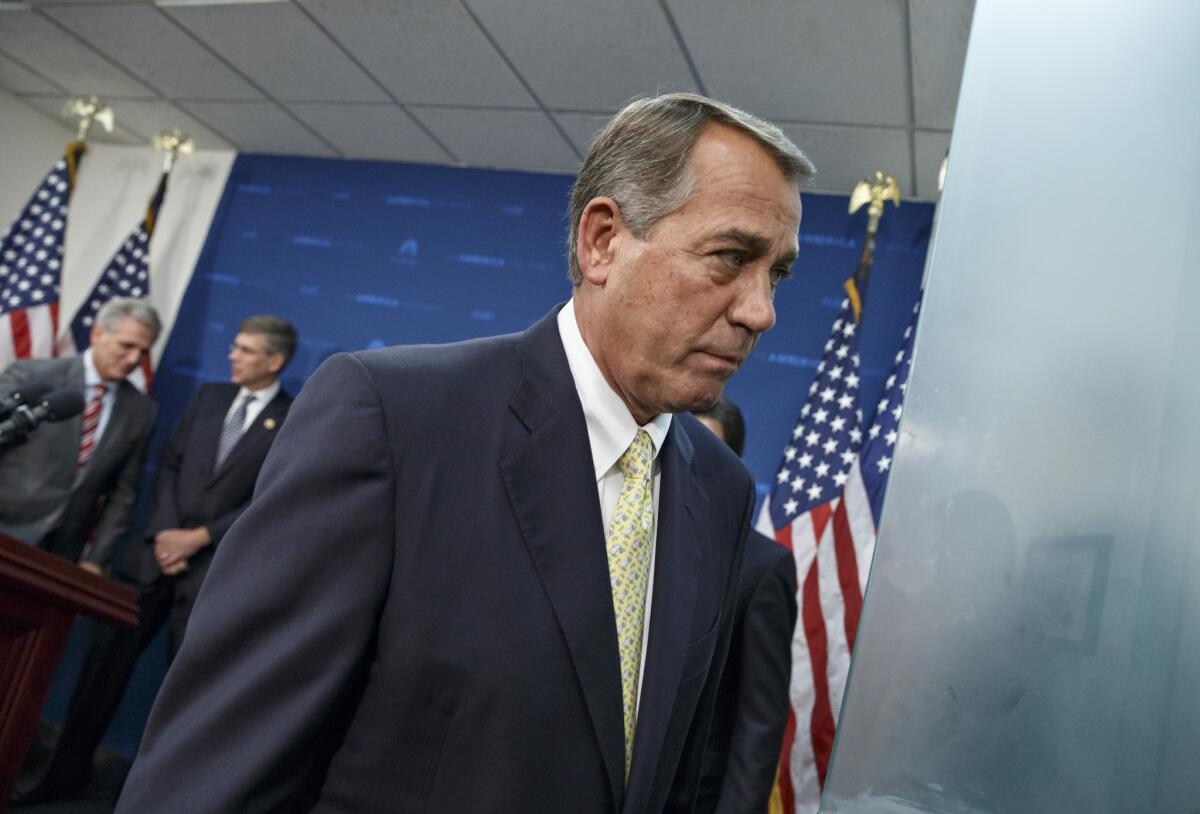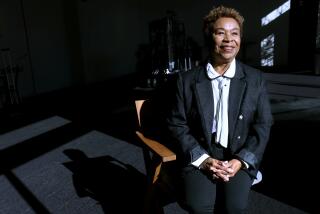Boycott or not? Democrats face choice on Benghazi investigation

House Speaker John A. Boehner’s decision to form a select committee on Benghazi has put Democrats in a bind: Do they participate in what they view as an election-year stunt, or boycott it and give up the opportunity to act as a watchdog?
Rank-and-file Democrats are leaning toward a boycott after the decision by Republican leaders to spurn a request from Democrats for an equally-divided panel to investigate the 2012 terrorist raid on a U.S. diplomatic compound, which killed four Americans, including the U.S. ambassador to Libya. But ahead of a House vote Thursday to form the committee, Democratic leaders are still weighing their options.
“We’re a little skeptical, like the public is, that this is a real process,” Rep. Xavier Becerra (D-Los Angeles), chairman of the Democratic Caucus, said Wednesday. “Our interest is in making sure that whatever the speaker is looking to do, it would be fair and balanced.”
At the heart of Democrats’ concern over the panel is the view that it may act as a more prominent staging ground for attacks against former Secretary of State Hillary Rodham Clinton, a potential 2016 presidential nominee for the party. One concern that argues in favor of participating is that without any presence on the committee, Democrats would lack the opportunity to scrutinize the work of Republican members.
And if past or current administration officials were called to testify, including Clinton, Democrats would benefit by having a presence. “There’s certainly an argument to be made for having a seat at the table,” said Rep. Adam B. Schiff (D-Burbank). “I come down on the side of not wanting to lend a partisan stunt more credibility than it deserves.”
Clinton, who was secretary of State at the time of the attack, weighed in Wednesday, telling ABC’s Robin Roberts in an interview that she didn’t believe there was any reason to continue an investigation. “There are a lot of reasons why, despite all of the hearings, all of the information that’s been provided, some choose not to be satisfied,” she said. “That’s their choice.”
Boehner earlier defended the need for a new special committee to take over investigatory work that has been done thus far by four separate standing committees, including House Oversight and Government Reform, chaired by Rep. Darrell Issa (R-Vista). “A line was crossed last week,” the Ohio Republican said, with the fresh disclosure of emails from White House staff discussing talking points in response to the attack.
“This is all about getting to the truth,” Boehner said. “It’s not going to be a sideshow. It’s not going to be a circus. This is a serious investigation.”
But after details of the proposed committee emerged Tuesday, House Minority Leader Nancy Pelosi (D-San Francisco) and Minority Whip Steny H. Hoyer (D-Md.) expressed concern that Boehner had rejected their conditions for participating in the select committee, primarily that there be equal numbers of Democrats and Republicans. The draft resolution, set to be voted on Thursday, calls for the panel to have seven Republicans and five Democrats.
“If you truly want this new select committee to be bipartisan and fair – and to be taken seriously by the American people – we call on you to reconsider this approach,” the leaders wrote to Boehner. “Another partisan review that serves only to politicize these attacks is disrespectful and unworthy of the American people.”
There have been four ad-hoc select committees formed by the House since the committee process was reformed in 1974. For each, the majority party at the time had more seats. The last such committee, formed in 2005 to investigate the planning and response to Hurricane Katrina, was boycotted by Democrats.
South Carolina Rep. Trey Gowdy, appointed by Boehner to lead the committee, said the 7-5 split would not hinder the panel from producing credible findings.
“I would encourage you to watch the process. I think the process matters every bit as much as the result,” he said in an interview on MSNBC. “But, look, as the president loves to say, elections have consequences. And one of the consequences would be that there are more Republicans in the House than Democrats.”
Many Democrats appeared to favor a boycott at this stage. Becerra cited members’ concern that it would only extend a GOP “witch hunt.” Rep. Steve Israel (D-N.Y.), who chairs the House Democrats’ campaign committee, suggested in a closed-door discussion Wednesday morning that Republicans could risk the kind of overreach that cost them seats in the 1998 elections at the peak of the Monica Lewinsky scandal.
Another member of the Democratic leadership suggested the new panel was an admission that Issa had been overly aggressive in his committee’s handling of the investigation. “This is the full neutering of Chairman Issa and his 16 months of work,” said Rep. Joseph Crowley (D-N.Y.), the Democratic Caucus vice chair.
Multiple Democratic leadership officials said no final decision had been made about how to proceed, and may not come down until after Thursday’s vote.
A Boehner aide said the speaker would probably appoint the six remaining Republican panelists by Friday, adding that it was his hope that Democrats would participate as well.
In the MSNBC interview, Gowdy maintained that the nature of the probe would depend on both sides acting in good faith.
“It would be shame on us if we intentionally drug this out for political expediency,” he said. “On the other hand, if an administration is slow-walking document production, I can’t end a trial simply because the defense won’t cooperate.”
More to Read
Start your day right
Sign up for Essential California for news, features and recommendations from the L.A. Times and beyond in your inbox six days a week.
You may occasionally receive promotional content from the Los Angeles Times.







